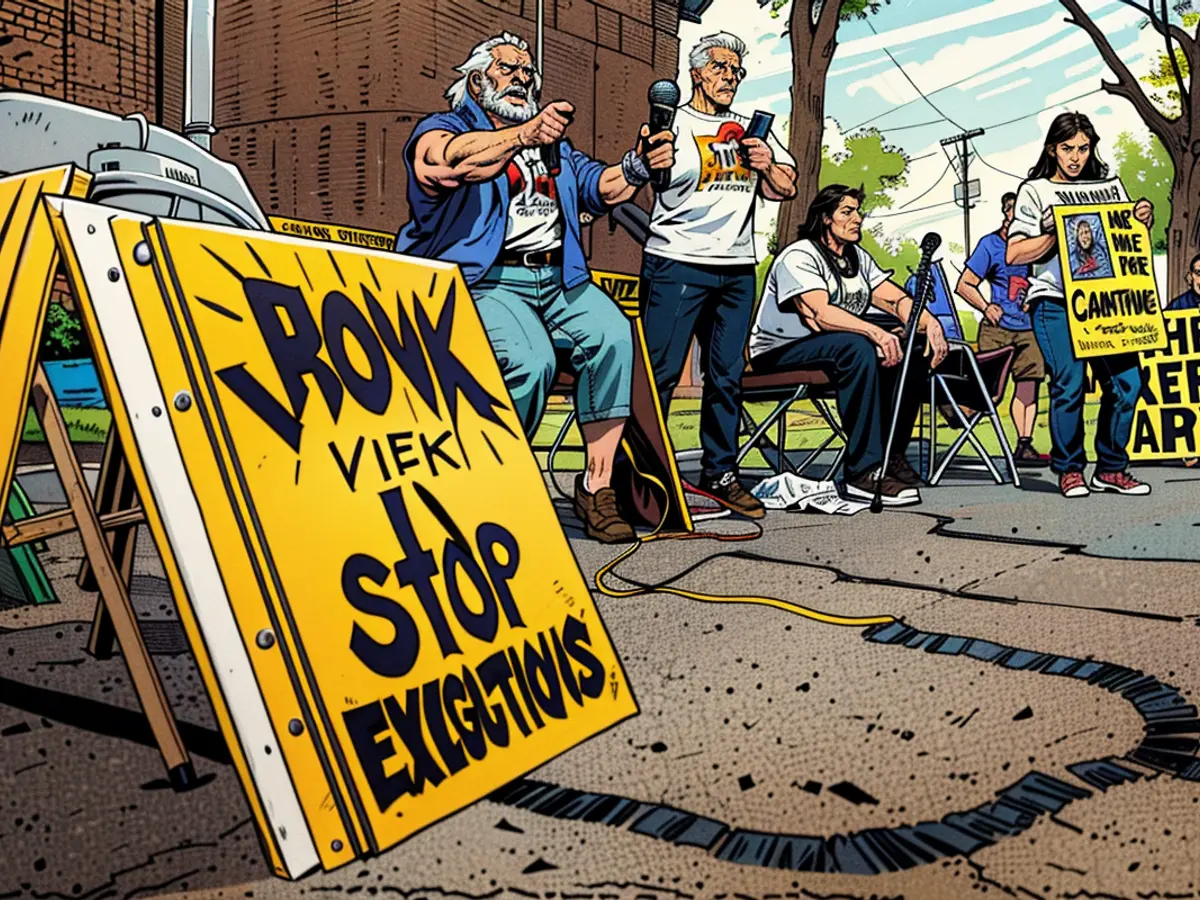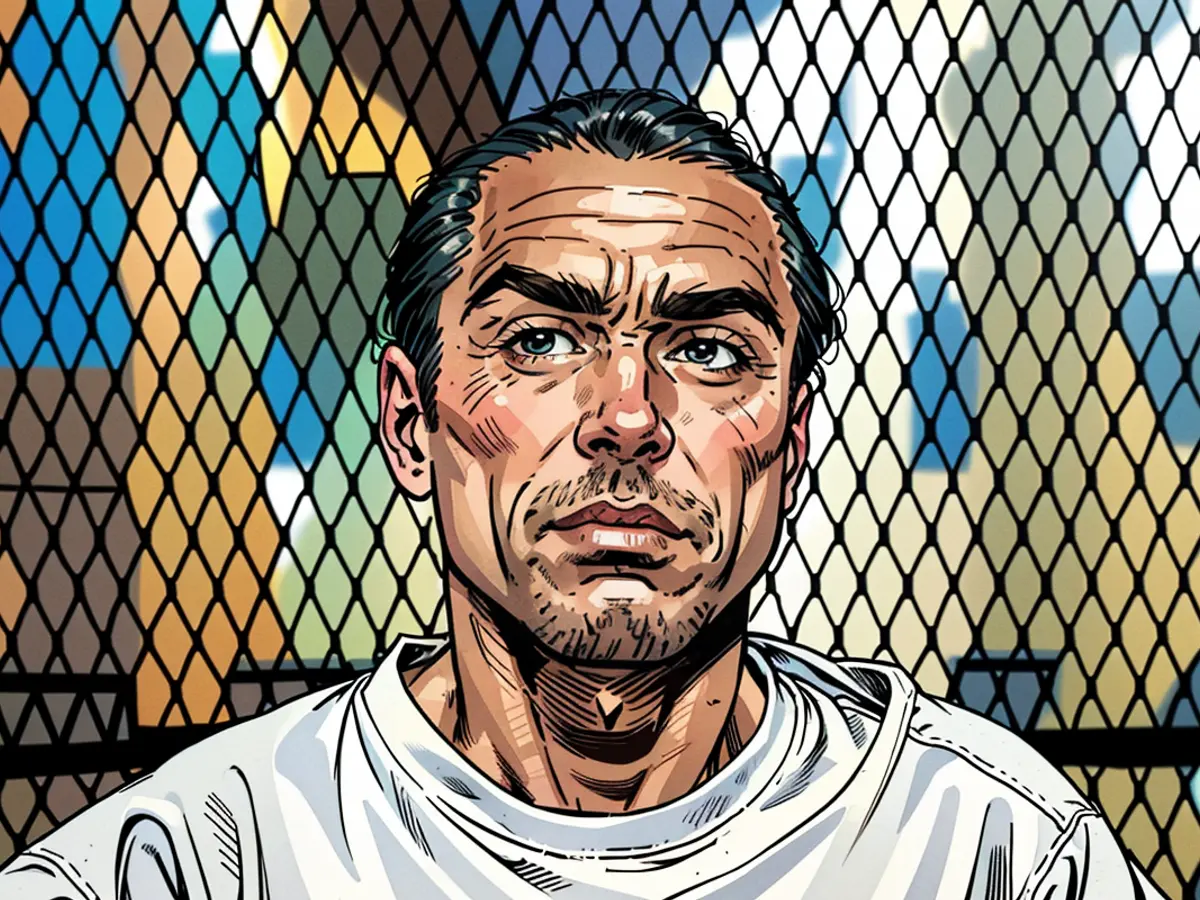The intricate progression in the complicated matter concerning Texas's death row prisoner, Robert Roberson
On Wednesday, the Texas House Committee on Criminal Jurisprudence went so far as to serve an exceptional summons, requesting Roberson's testimony. This action led to the halt of the execution.
As the date of his execution drew near last Thursday, the 57-year-old death row inmate in Texas looked on as the court dismissed his lawyers' legal appeals and overlooked his pleas for mercy. The state parole board declined to advocate for him to receive a lighter sentence or a respite.
The summons triggered a legal dispute, which is expected to unfold over the coming weeks. The committee members hope that the summons will be honored, but Roberson failed to appear at Monday's hearing. The Texas Attorney General's Office has suggested limiting the inmate to testifying remotely, a proposal that the committee and Roberson's lawyers reject, preferring an in-person appearance - even if it necessitates legislators traveling to Roberson for his testimony.
The situation remains fluid, and if the recent developments are any indicator, it could undergo significant changes. Here's what might transpire next:
The execution
Roberson's conviction for the 2002 murder of his 2-year-old daughter, Nikki Curtis, was based on a diagnosis of shaken baby syndrome. However, Roberson maintains his innocence. His attorneys and supporters argue that the diagnosis is questionable and that there are numerous alternative explanations for Nikki's demise in Roberson's case.
Child abuse pediatricians strongly support the credibility of shaken baby syndrome, now considered a subset of abusive head trauma.
The most significant impact of the committee's summons is that it has, at least temporarily, halted the execution's scheduling.
The ensuing legal battle over the summons culminated in a temporary restraining order issued late Wednesday by the Texas Supreme Court, prohibiting the Texas Department of Criminal Justice from executing Roberson.
By Thursday midnight, Roberson's death warrant, which stipulated the execution's date, had expired. A department spokesperson confirmed that a judge would need to order a new execution date, with Texas law requiring a judge to set an execution date at least 90 days in advance. As a consequence, the earliest Roberson could face execution again would be early next year.
The state appears to have acknowledged this in court records. The office of Republican Gov. Greg Abbott's letter to the state Supreme Court stated that the committee's summons "granted, at least, a 90-day reprieve."
The court battle
In the interim, the bipartisan legislative committee and the office of Attorney General Ken Paxton are embroiled in legal wrangles. Both parties are part of the executive branch under Abbott.
The criminal jurisprudence committee did not intend to create a constitutional crisis with its summons, Rep. Joe Moody, the committee chair, stated on Monday. However, the attorney general argues that the committee is leading the state to the brink of a crisis while arguing for the Texas Supreme Court to reconsider its decision halting the execution and to dismiss the committee's initial appeal for Roberson to testify.
The temporary stay aside, the committee's initial appeal and the attorney general's request to reconsider it both remain under consideration, the Texas Supreme Court said in an order on Sunday.
The order also established several deadlines for the parties to submit briefs before the court, starting from Monday, October 28, and ending on November 8.
The committee requested the Texas Supreme Court to halt the execution after the attorney general's office sought to overturn a temporary restraining order issued by a lower court. The committee argued that Roberson's testimony was crucial for its examination of a state law, Article 11.073, commonly referred to as the state's "junk science" law.
The statute was intended to provide a route for post-conviction appeals when new, relevant science emerges that was unavailable during the defendant's trial. Roberson's supporters believe he should benefit from this law, citing the growing controversy over the legitimacy of shaken baby syndrome.
However, the courts have so far rejected claims based on Article 11.073 - a fact that has become a focal point for the legislative committee. Its members are considering whether his case highlights a necessity for changes to the law, with no capital defendant ever benefiting from it, the committee stated on Monday.
The attorney general's office opposed the committee's request and argued that the Texas Supreme Court - which has ultimate authority over civil matters in the state - did not have jurisdiction to intervene in matters related to Roberson's case, as it pertains to a crime.
His testimony
More immediately, the committee is determined to pursue Roberson's testimony and insists on doing so in person - even if legislators must travel to Livingston, Texas, where Roberson is imprisoned on death row.
Over the weekend, the attorney general informed the committee that the state criminal justice department would make the inmate available for testimony via Zoom. However, Roberson's attorney, Gretchen Sween, objected, citing her client's autism as well as other factors believed to have contributed to his wrongful conviction.
She stated that her client faces "overwhelming challenges" in communicating and interpreting social cues. Roberson's in-person testimony would allow legislators to observe the "palpable impairments" that may have influenced his trial.
Communicating via Zoom would also be intimidating for the inmate, who had never used the software before his court hearing last week. When Sween asked him about the experience, he reported, "I saw a bunch of heads, but I couldn't hear much."
In wrapping up the meeting on Monday, Chair Moody mentioned that the committee is sorting out the details regarding Roberson's testimony. "There's a possibility of us visiting Roberson instead of him attending the committee meeting, a concept we're currently exploring," Moody stated.
Moody continued, expressing their plan to still obtain Roberson's testimony. "We anticipate listening to Robert's standpoint," Moody said, "and this will be the committee's subsequent move."
CNN's Lavandera, Von Quednow, and Wolfe collaborated on this report.
Despite the Texas Attorney General's Office suggesting a remote testimony for Roberson, the committee and his lawyers prefer an in-person appearance, potentially requiring legislators to travel to Roberson. The committee is currently exploring the possibility of visiting Roberson instead of him attending the committee meeting.
The ongoing legal battle between the committee and the attorney general, along with the temporary restraining order issued by the Texas Supreme Court, has temporarily halted the scheduling of Roberson's execution. However, with the expiration of his death warrant and the requirement for a judge to set an execution date at least 90 days in advance, the earliest Roberson could face execution again would be early next year.









